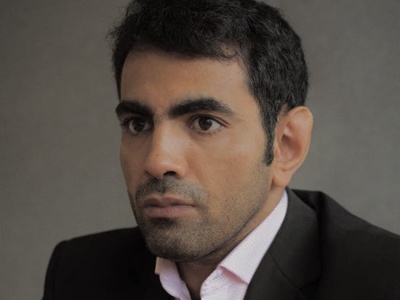
Spyware Case: Court of Appeal to hear state immunity case against Kingdom of Bahrain brought by Bahraini dissidents
Two Bahraini dissidents are preparing for a further court hearing in their landmark case to determine whether the Kingdom of Bahrain is afforded immunity over allegations that it used spyware against them while living in the UK.
Posted on 26 July 2024
Lawyers representing Dr Saeed Shehabi and Moosa Mohammed will argue against the Kingdom of Bahrain’s appeal of a High Court ruling last year which found that state immunity does not apply in this case. The appeal of this ruling will take place at the Court of Appeal on 29 and 30 July 2024.
Dr Shehabi and Mr Mohammed, who have been engaged in political activism to highlight and condemn human rights abuses in Bahrain for a number of years, claim their laptops were infected in 2011 by malicious surveillance software, known as FinSpy. The spyware product, also known as FinFisher, is made by Anglo-German technology company the Gamma group. The dissidents believe that the infection was carried out, directed, authorised or caused by the Government of Bahrain or its agents.
Represented by law firm Leigh Day, Dr Shehabi and Mr Mohammed made an application in November 2020 for permission to serve their claim on the Kingdom of Bahrain through diplomatic channels.
In a previous High Court hearing in February 2022, the Government of Bahrain argued that it is immune from the jurisdiction of the Courts of England and Wales, that the dissidents’ application for permission to serve out of the jurisdiction on the Kingdom of Bahrain should be set aside and that the High Court does not have jurisdiction to hear the claims and therefore they should be dismissed. The claimants argued that because the allegations relate to personal injury caused by acts or omissions in the UK, the exception in the State Immunity Act 1978 applies and the Kingdom of Bahrain is not afforded immunity in respect of these proceedings.
In a judgment handed down in February 2023, the High Court dismissed the Kingdom of Bahrain’s arguments. The court ruled that the Kingdom of Bahrain does not have immunity under the State Immunity Act 1978 in relation to its alleged use of FinFisher surveillance software to infiltrate the computers of Dr Shehabi and Mr Mohammed. It is this ruling that is being appealed by the Kingdom of Bahrain.
Ida Aduwa, solicitor at law firm Leigh Day, said:
“In the United Kingdom, there have been many cases where politicians, lawyers, journalists, human rights activists and political dissidents have been targeted by foreign states as a result of their work. Individuals should be empowered to take legal action against the perpetrator states and foreign states should not be permitted to hide behind state immunity when confronted by legal action in the Courts of England and Wales in such cases. We hope that the Court of Appeal will uphold the High Court’s judgment and find that private individuals can take legal action against foreign states for acts of digital surveillance and spyware in the United Kingdom."
Martyn Day, senior partner at Leigh Day, added:
“The use of spyware by foreign states to infiltrate the software of dissidents living in this country would seem to be widespread. We would hope that the Court of Appeal will follow the High Court in saying this is totally inappropriate and outside the immunity states are normally entitled to in their operations in this country.”

High Court grants permission to British journalist to bring a spyware based legal case against the United Arab Emirates
A journalist and former activist in the Tunisian revolution of 2011 has been granted permission to serve her legal claim against the United Arab Emirates (UAE) for its alleged use of Pegasus spyware to infiltrate her mobile phone.

High Court gives green light to a Pegasus spyware case being brought in London against the Kingdom of Saudi Arabia by a UK based dissident
The High Court has today ruled the KSA does not have immunity under the State Immunity Act 1978 in relation to a case brought against it by satirist and human rights activist Ghanem Al-Masarir for its alleged use of spyware to infiltrate his mobile phones.


